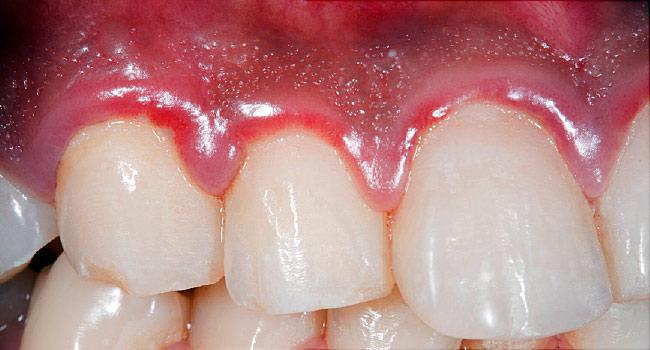
Age-related cognitive decline has many implications for older adults. It can be associated with many age-related disorders and diseases, and it can impact the quality of elderly's lives. It is becoming more important to maintain a high quality lifestyle as the population becomes older. Identifying and targeting the causes of age-related cognitive dysfunction is crucial. It is still unclear what biological causes cognitive decline. Studies in animal models are providing insight into the underlying mechanisms. A new study, published in eLife's open-access journal eLife, has shown that ISRIB may reverse the declines caused by aging in cognition.
Systemic inflammation levels rise with age. There is strong evidence linking chronic inflammation to cognitive decline. The neurodegenerative diseases of dementia and cognitive impairment can be linked to aging-related inflammation. These changes can easily be controlled by decreasing inflammation.

Clinical biomarkers can be used to predict cognitive decline or the development of mild cognitive impairment (MCI). To detect glucose homeostasis, an oral glucose tolerance test may be used. A decreased glucose tolerance is linked to an increased risk for MCI, Alzheimer's, and dementia. In addition, oxidative stress is a possible link between physical frailty and cognitive decline.
Inflammation is also linked to age-related declines in executive functions and episodic memory. Multiple animal models have demonstrated that cognitive impairment can be linked to non-pathological neuroinflammation. Neuroinflammation can also be seen in rodents, humans and pigeons. However, it's not clear that inflammation is the primary factor in the development of cognitive decline with age. Other factors may contribute, such as oxidative stress and mitochondrial dysfunction.
A variety of neuroimaging as well as molecular biomarkers has been used to assess whether someone is at risk for cognitive impairment. Baseline measures, such as cortisol and C-reactive proteins, are linked to cognitive impairment and memory problems. Some studies have suggested that increased cortisol levels may contribute to cognitive decline. Higher levels of cortisol are also associated with decreased hippocampal volume in Alzheimer patients. Cortisol can be described as a steroid hormone. It is produced by the adrenal glands. An increase in cortisol levels may make frail older adults more susceptible to stressors.
Glucose tolerance is a critical screening tool to identify those at risk for cognitive decline. To assess glucose homeostasis, the oral glucose tolerance testing OGTT-2h is used. Higher levels of glucose are associated with greater migration. Assessing impaired glucose tolerance in community-based volunteers was performed. Participants with impaired glucose control or glucose tolerance were placed in one of three categories: 0-to-1 (or 0-to-0.5) or 0.5-to-1 (or 0.5-to-1). Cognitive migration was worse in those who were part of the 0.5-to-1 group. This was done by measuring global CDR.

To investigate frailty among older adults, the ELSA-Brazil research was done. Trained raters administered a global CDR score to assess cognitive performance and physical fragility. Cognitive performance and impairment were then assessed. Global CDR change was used as the primary clinical outcome.
FAQ
How can weight change with age?
How can you determine if your bodyweight is changing?
When the body has less fat than its muscle mass, it is called weight loss. This means that daily energy needs must be greater than the calories consumed. A decreased level of activity is the main cause of weight loss. Other causes include illness, stress, pregnancy, hormonal imbalances, certain medications, and poor eating habits. Weight gain occurs when there is more fat than muscle mass. It happens when people eat more calories than they use during a given day. There are many reasons for this, including overeating and increased physical activity.
The main reason why our bodies lose weight is because we consume fewer calories than we burn. Exercise regularly increases your metabolism rate, which allows you to burn more calories every day. This doesn't necessarily mean we will lose weight. What matters is whether we are losing fat or building muscle. We will lose weight if we burn more calories than we consume. But if we're consuming more calories than we're burning, then we're actually storing them as fat.
As we get older, we tend not to be as mobile and move as fast. We also tend eat less than we did when our children were young. Therefore, we tend to put on weight. On the flip side, we tend to have more muscle mass so we look bigger than we really are.
Without regularly weighing yourself, it's impossible to determine how much weight has been lost. There are many ways you can measure your weight. You can measure your waist, your hips and your thighs. Some people prefer to use the bathroom scales, while some prefer to use tape measurements.
Track your progress by measuring your waistline and weighing yourself every week. You can also take images of yourself every few weeks to see how far it has come.
You can also find out how much you weigh by looking up your height and weight online. If you are 5'10' tall and weigh 180lbs, your weight would be 180.
How often should I exercise
A healthy lifestyle requires regular exercise. There is no set time limit for exercising. Finding something that you love and sticking with it is the key.
If you exercise three times a week then aim for 20-30 mins of moderate intensity. Moderate intensity means you'll be breathing hard long after you're done. This type of exercise burns approximately 300 calories.
Walking is a great option if you are a keen walker. You can do 10-minute walks four days per week. Walking is low in impact and easy for your joints.
Jogging three times a week for 15 mins is enough if you want to run. Running is a great way to burn off excess calories and build muscle tone.
Start slowly if you aren't used to doing exercise. Begin with 5 minutes of cardio every other day. Gradually increase duration until you achieve your goal.
How do I measure body fat
A Body Fat Analyzer (BFA) is the best method to measure bodyfat. These devices measure the body fat percentage in people who wish to lose weight.
How can I tell what is good for me?
Listening to your body is essential. Your body knows best when it comes to how much exercise, food, and rest you need. It's important to pay attention to your body so you don't overdo things. Listen to your body and make sure you're doing everything you can to stay healthy.
What can I do to lower my blood pressure?
The first thing you need to do is find out what causes high blood pressure. Next, take steps that will reduce the risk. This could be as simple as eating less salt, losing weight (if necessary), or even taking medication.
Make sure you're getting enough exercise. Walking is a great alternative if you don't have the time or energy to exercise regularly.
Consider joining a gym if your current exercise regimen is not satisfying you. You will likely want to join an exercise group that shares your goals. It is much easier to stick with a exercise program if there are others who will be watching you at the club.
Increase immunity with herbs or supplements
Natural remedies and herbs can be used to increase immune function. Examples include ginger, garlic and oregano, echinacea, vitamin C, ginkgo Biloba, and echinacea.
These herbs should not be considered as a substitute for conventional medical treatment. Side effects include nausea, dizziness and stomach cramps.
What is the problem in BMI?
BMI stands for Body Mass Index. This is a measure of body fat that is calculated based on height or weight. The following formula is used to calculate BMI:
Weight in kilograms divided by height in meters squared.
The result is expressed as a number from 0 to 25. Scores between 0 and 25 indicate obesity. Scores higher than 18.5 are considered overweight. Scores higher than 23 are considered obese.
A person with a body mass index of 22 and a weight of 100 kg and a height 1.75m will have a BMI.
Statistics
- According to the 2020 Dietary Guidelines for Americans, a balanced diet high in fruits and vegetables, lean protein, low-fat dairy and whole grains is needed for optimal energy. (mayoclinichealthsystem.org)
- The Dietary Guidelines for Americans recommend keeping added sugar intake below 10% of your daily calorie intake, while the World Health Organization recommends slashing added sugars to 5% or less of your daily calories for optimal health (59Trusted (healthline.com)
- WHO recommends consuming less than 5% of total energy intake for additional health benefits. (who.int)
- nutrients.[17]X Research sourceWhole grains to try include: 100% whole wheat pasta and bread, brown rice, whole grain oats, farro, millet, quinoa, and barley. (wikihow.com)
External Links
How To
How to Live a Healthy Lifestyle
Healthy lifestyle means you can maintain your weight, health, and fitness. This lifestyle includes healthy eating habits, regular exercise, adequate sleep, and abstaining from drugs, alcohol, caffeine, tobacco and other harmful substances. A healthy lifestyle helps you stay fit and feel good about yourself. Additionally, a healthy lifestyle will reduce your chances of developing chronic diseases like stroke, heart disease or diabetes, as well as cancer, osteoporosis, arthritis, and other conditions.
This guide will help you live a healthier, more fulfilling life. The first part of the project consisted of writing the introduction, which explains what a healthy lifestyle is, why people should adopt a healthy lifestyle and who we are. The body paragraphs are a collection of tips on how to live a healthy life. Finally, I wrote the conclusion, which summarizes the whole article and provides some additional resources if needed.
This assignment taught me how to write a concise paragraph. Also, I learned how my ideas could be organized into topic sentences or supporting details. Additionally, I learned how to organize my ideas into topic sentences and supporting details. I also learned how to write with proper grammar.